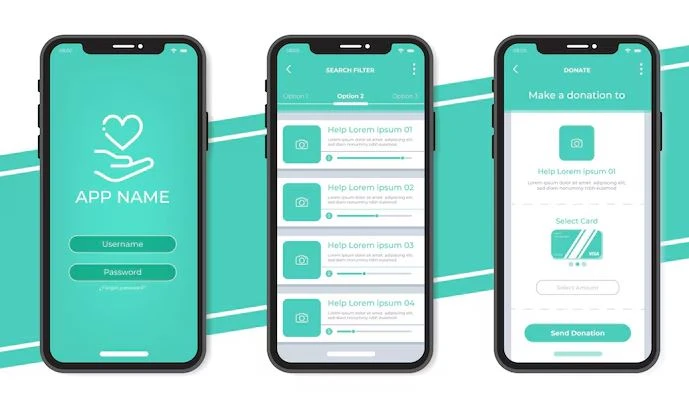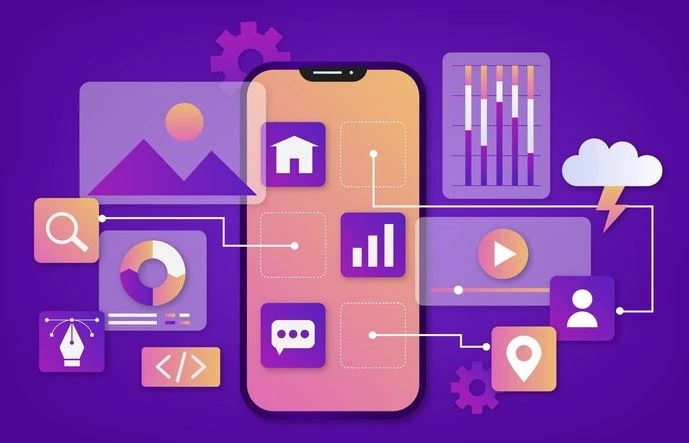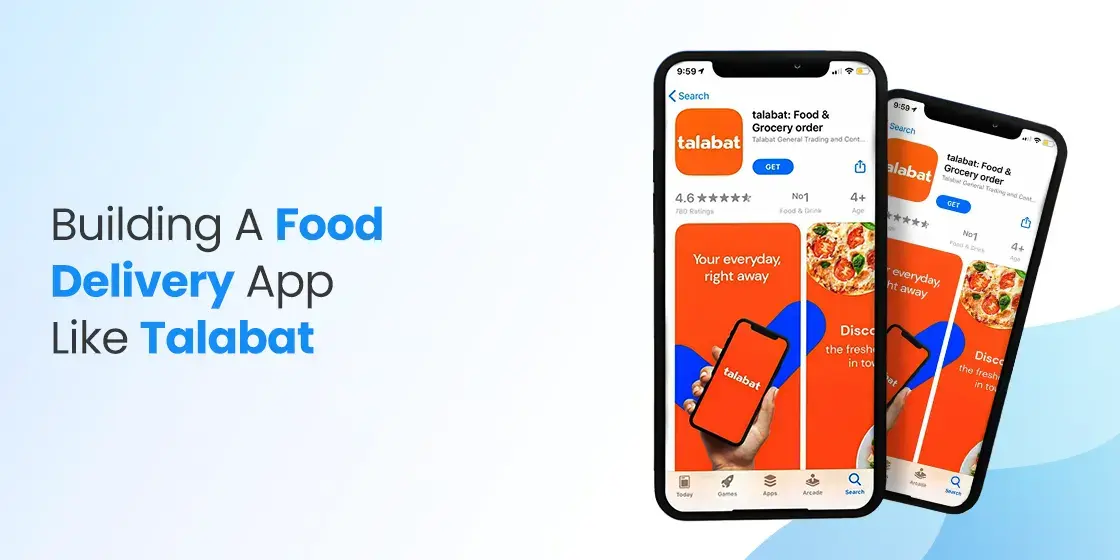Table of Content
Learn What is the Core Difference Between a Web App and Mobile App Below
Some people consider that mobile apps and web apps are similar to each other. They do not find any difference between them, likely because of overall looks. However, this is not a complete thing as there is a lot of difference between a web app and mobile app. As a developer, you need to know about these differences, because it plays a major role in shaping up your development process. There are different strategies employed for each of them, meaning that the set of practices for web app development is different from mobile app development.
Those who have little knowledge of the field often think that web app and mobile app can be developed similarly. This is certainly a wrong concept, as there are various differences between them. The selection of tools and technologies required for development is the first factor to consider. The tech stack for web app is different from the mobile app, containing different frameworks and coding languages. If you are not technically skilled to use these tools, it is best recommended to take professional web development services. It refers to the outsourcing model in which you hire an external resource to work on your software project.
However, if you are planning to develop a project yourself, you need to have a good understanding of the difference between a web app and mobile app. This blog will give you a good comparison between the two, so that you can understand their unique features and functionalities. Let’s start from the basics taking a quick look at the definition of web app and mobile app below.
What is a Web Application?

A web application is a software application that runs on remote servers and is accessed by users through a web browser over the internet. Unlike traditional desktop applications that are installed locally on a user’s computer, web applications are hosted on servers and accessed remotely. This architecture allows users to access the application from any device with an internet connection, making them highly accessible and platform-independent. Web applications utilize a combination of client-side and server-side technologies to deliver dynamic content and functionality to users.
At its core, a web application consists of three main components: the client-side interface, the server-side logic, and the database. The client-side interface is typically built using HTML, CSS, and JavaScript and is responsible for rendering the user interface and handling user interactions within the web browser. The server-side logic, often implemented using programming languages like Python, Ruby, Java, or PHP, processes user requests, executes business logic, and generates dynamic content to be sent back to the client. The database stores and manages the application’s data, allowing for efficient retrieval and storage of information.
Web applications can range from simple websites with basic functionality, such as blogs or informational sites, to complex systems like online banking platforms, e-commerce websites, and social media networks. They offer a wide range of features and capabilities, including user authentication, data processing, real-time updates, and integration with third-party services and APIs. With the advancement of web technologies and frameworks, web applications continue to evolve, becoming more powerful, interactive, and responsive to meet the growing demands of users and businesses alike.
What is a Mobile Application?

A mobile application, often referred to as an app, is a software application designed specifically to run on mobile devices such as smartphones and tablets. Unlike traditional desktop applications, mobile apps are optimized for smaller screens and touch-based interactions, making them highly intuitive and user-friendly. Mobile applications are typically downloaded and installed from app stores, such as the Apple App Store for iOS devices and Google Play Store for Android devices, although they can also be distributed through other channels such as direct downloads or enterprise app stores.
Mobile applications can serve a wide variety of purposes, ranging from productivity tools and games to social networking platforms and utilities. They leverage the capabilities of mobile devices, including features like GPS, cameras, accelerometers, and push notifications, to deliver rich and engaging user experiences. Mobile apps are often developed using platform-specific programming languages and frameworks, such as Swift or Objective-C for iOS apps and Java or Kotlin for Android apps, although mobile app development tools like React Native and Flutter have gained popularity for building apps that can run on multiple platforms.
The mobile app ecosystem is vast and diverse, with millions of apps available across different categories and industries. Mobile applications have transformed the way people interact with technology, enabling them to access information on the go. With the proliferation of smartphones, mobile apps have become an integral part of everyday life, providing users with convenient access to a wide range of services wherever they are. As mobile technology continues to advance, mobile applications will continue to evolve, offering new opportunities for innovation and enhancing the way we live, work, and play.
Comparing the Functionality of Web and Mobile Apps
Mobile applications often offer users a more streamlined experience compared to their web counterparts, typically providing a subset of functionalities tailored to specific tasks or activities. For instance, mobile apps such as Roblox focus on gaming experiences, while financial tools like TurboTax’s mobile app specialize in tax calculations. These applications are designed to be efficient and user-friendly on smaller screens, optimizing their interfaces and functionalities for touch-based interactions. Despite their limited scope, mobile apps excel in delivering targeted experiences, catering to users’ on-the-go needs with convenience and simplicity.
In contrast, web applications offer a broader range of features and functionalities compared to their mobile counterparts. Take Adobe Photoshop as an example, which provides both a mobile app and a web-based version. While the mobile app offers basic drawing and painting features, the web application grants users access to the full suite of Photoshop capabilities, providing a more comprehensive and robust user experience. Similarly, web apps like Google Apps, Microsoft 365, and Gmail offer extensive functionalities accessible through web browsers, empowering users with versatile tools for productivity, collaboration, and communication.
How Mobile Apps are Built?

Developing mobile applications typically incurs higher costs compared to web applications due to their platform-specific nature. Unlike web apps, which can often be developed using universal web technologies, mobile apps require separate development for each platform they target. This platform specificity necessitates a unique design and development process for each operating system, such as iOS and Android. Consequently, launching an app across multiple platforms often entails significant additional work, effectively requiring developers to start from scratch in terms of design and coding.
Despite the higher development costs, mobile apps offer distinct advantages over web apps, particularly in terms of speed and performance. Native mobile apps, developed specifically for a particular platform using languages like Swift for iOS or Kotlin for Android, are optimized for the respective operating systems. This optimization results in smoother performance, tighter integration with device hardware and features, and enhanced user experiences. Furthermore, native mobile apps can leverage the full capabilities of the underlying platform, allowing developers to implement sophisticated features.
The development process for native mobile apps involves utilizing Integrated Development Environments (IDEs) tailored to each platform, such as Xcode for iOS and Android Studio for Android. These IDEs provide comprehensive toolsets for designing, coding, debugging, and testing mobile applications, streamlining the development workflow and ensuring compatibility with platform-specific requirements. Despite the initial investment in specialized development tools and resources, the end result is often a high-quality, performant mobile app that delivers superior user experiences and meets the demanding standards of modern mobile users.
How Web Apps are Built?

Web applications are commonly constructed utilizing a combination of programming languages including JavaScript, CSS, HTML, and backend languages such as Python. These languages and web development frameworks facilitate the creation of dynamic web experiences, allowing developers to build responsive and feature-rich applications. Unlike mobile app development, there is no standardized software development kit (SDK) specifically tailored for building web apps. However, developers have access to a plethora of libraries that streamline the development process and enable the creation of diverse web applications.
In contrast to mobile apps, web apps are renowned for their agility and accessibility. Developers can leverage web technologies and frameworks to rapidly prototype and deploy web applications, resulting in quicker development cycles and faster time-to-market. Furthermore, the absence of platform-specific considerations in web development eliminates the need for separate builds for different operating systems, simplifying the deployment process and ensuring broad compatibility across devices. Despite their swiftness in development, web apps typically exhibit a more straightforward feature set compared to their mobile counterparts.
One of the key advantages of web app development is the availability of templates and pre-built components that accelerate the creation of digital applications like Mashreq Neobiz. Developers can utilize these templates as starting points or frameworks to scaffold their projects, reducing development time and effort. Additionally, the modular nature of web development allows for easy integration of third-party libraries. While web apps may offer a simpler feature set compared to mobile apps, their scalability, and accessibility make them invaluable tools for businesses and organizations seeking to establish a strong online presence.
Web App vs Mobile App: Which One is Perfect for Your Business?

When deliberating whether to develop a mobile app or a web app, it’s imperative to align your decision with your overarching objectives. Mobile apps are often preferable for standalone programs like games, offering immersive experiences optimized for mobile devices. Conversely, web apps possess the advantage of broader accessibility, as they can be accessed by anyone with an internet connection and a web browser. Moreover, the universality of web apps alleviates concerns regarding device compatibility, ensuring consistent user experiences across different platforms and devices.
Furthermore, the utility of mobile apps in offline scenarios presents another consideration in the decision-making process. Unlike web apps, which require an internet connection for functionality, certain mobile apps can maintain limited functionality even without internet access. However, it’s essential to weigh this against the limitations inherent in web apps, particularly regarding access to device features. While mobile apps can tap into various device capabilities, such as camera or GPS, many web apps lack such integration.
In essence, the choice between a web app and a mobile app hinges on a careful evaluation of your project’s objectives, audience reach, and technical requirements. While mobile apps excel in delivering tailored experiences and offline functionality, web apps offer unparalleled accessibility and ease of deployment. By considering factors such as target audience, feature requirements, and technological considerations, you can make an informed decision that aligns with your project’s goals and maximizes its potential for success.
Build Feature-rich Web and Mobile Apps with StruqtIO
StruqtIO has become a leading name in the IT industry for providing web and mobile app development services. Our rich market experience gives us the ability to develop all types of web apps with perfection. Similarly, we have also built a variety of mobile apps for different businesses working in diverse commercial sectors. This is the core reason why clients have always shown complete trust on our services, making us a top name in the IT sector of the UAE.
We offer a wide range of services covering diverse development areas. Our expertise includes customized software development, seamless cloud integration, database development, and efficient software outsourcing. With this comprehensive suite of services, we aim to propel your business seamlessly into the next phase of digital evolution.
Frequently Asked Questions
| What is the purpose of developing a web application? The purpose of developing a web application is to create a software app that can be accessed through the internet. It aims to provide convenient access to information, streamline processes, and facilitate communication and collaboration across various devices and platforms. |
| What is the purpose of developing a mobile application? Mobile applications are precisely created for smartphones and tablets. They provide users specialized functionality, enhanced experiences, and on-the-go access to different online services and content. These apps aims to leverage mobile device capabilities to deliver personalized interaction and meet the evolving needs of mobile users. |
| Which tools and technologies are used for web app development? There are different types of tools used for web app development. It includes various programming languages, frameworks, content management systems and libraries. Some of the popular coding languages and frameworks used by the developers include Python, C#, Angular, PHP, React, WordPress and more others. |
Final Words
That concludes our entire article in which we have discussed key differences between web and mobile applications. It should be well understood to everyone that both of these apps differ from each other on various grounds. This blog has highlighted some of them in detail, so that you can understand the core difference between a web app and mobile app efficiently.
If you are looking for a company that could help you by providing proper mobile app development guidelines to build advanced web and mobile applications, get in touch with us today. We will work dedicatedly with you to understand all the requirements and build quality products according to them.

Empower your digital journey with StruqtIO - Your dedicated partner for cutting-edge custom software development, innovation, and digital transformative solutions. Harness the power of technology to elevate your business and redefine your digital landscape today.


